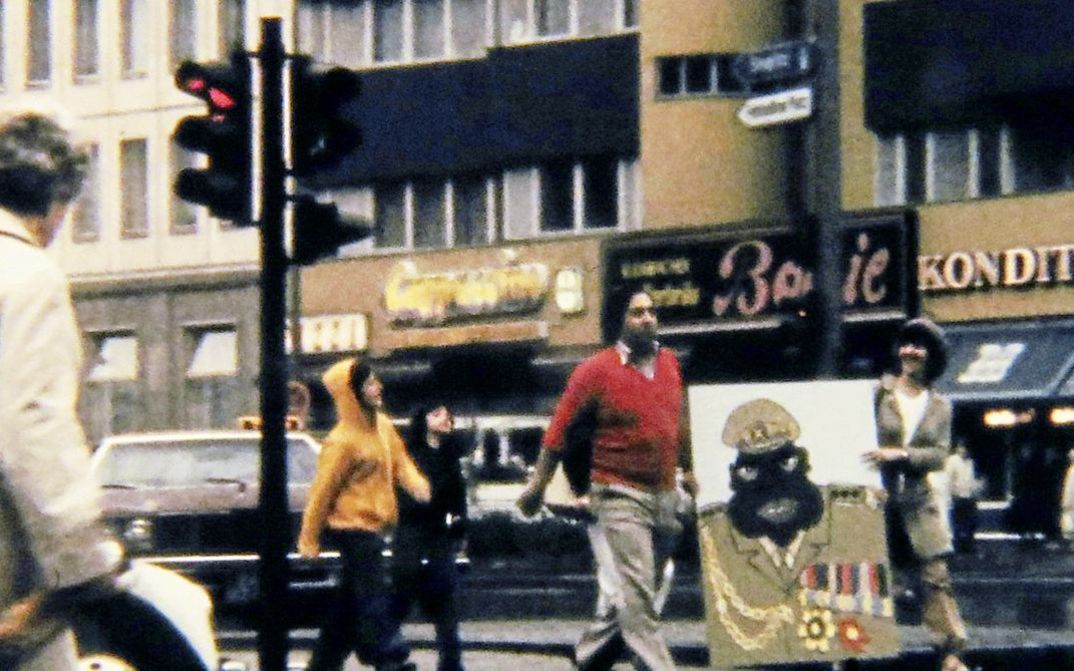Aufenthaltserlaubnis

Director
Antonio Skármeta
Federal Republic of Germany / 1978
12 min.
/ 16 mm
Original language
German, Spanish
Summer in West Berlin, in the late 70s. Exiles from all over the world are dancing in the Tiergarten or playing football in front of the Bellevue Palace. They go to the municipal office and have their residence permits extended by a grumpy official; the passports are stamped in rhythmic fashion. They see their children’s photos in the passports and their children today, years older. A poem by Pablo Neruda is heard in voiceover: “Exile is round in shape/A circle, a ring./Your feet go in circles,/You cross land/And it is not your land.” They draw pictures of dictators on the way out on cardboard: Idi Amin of Uganda, Dimitrios Ioannidis of Greece, the Shah of Persia, General Franco of Spain and António Salazar of Portugal. When they hug their friends at Tegel airport who are travelling back to where they grew up, their joy knows no bounds.
But one dictator hasn’t been toppled yet. Augusto Pinochet’s military junta is still oppressing the filmmaker's home country of Chile. He is already being carried through the streets of West Berlin as a cardboard cut-out though, a defiant hope to be fulfilled in 1990. (Cristina Nord)
Production company Common Film Produktion (Berlin, Germany). Director Antonio Skármeta. Screenplay Antonio Skármeta. Cinematography Axel Brandt. Editing Daglasa. Sound Tuto. Production manager Helmut Wietz.
Antonio Skármeta, born in Antofagasta, Chile in 1940, he had to leave his homeland after the 1973 military putsch and lived in exile in West Berlin. There the writer wrote screenplays, including for Peter Lilienthal and Christian Ziewer, and made four films of his own, among them MIT BRENNENDER GEDULD (1983). Its remake IL POSTINO (1994) made the material and its author world famous. Antonio Skármeta returned to Chile in 1989. From 2000 to 2003, he served as Chile's ambassador to Germany.
Films: 1978: Aufenthaltserlaubnis. 1983: Wenn wir zusammen lebten... (99 min.), Ardiente paciencia / Mit brennender Geduld (80 min.). 1984: Abschied in Berlin (66 min.).